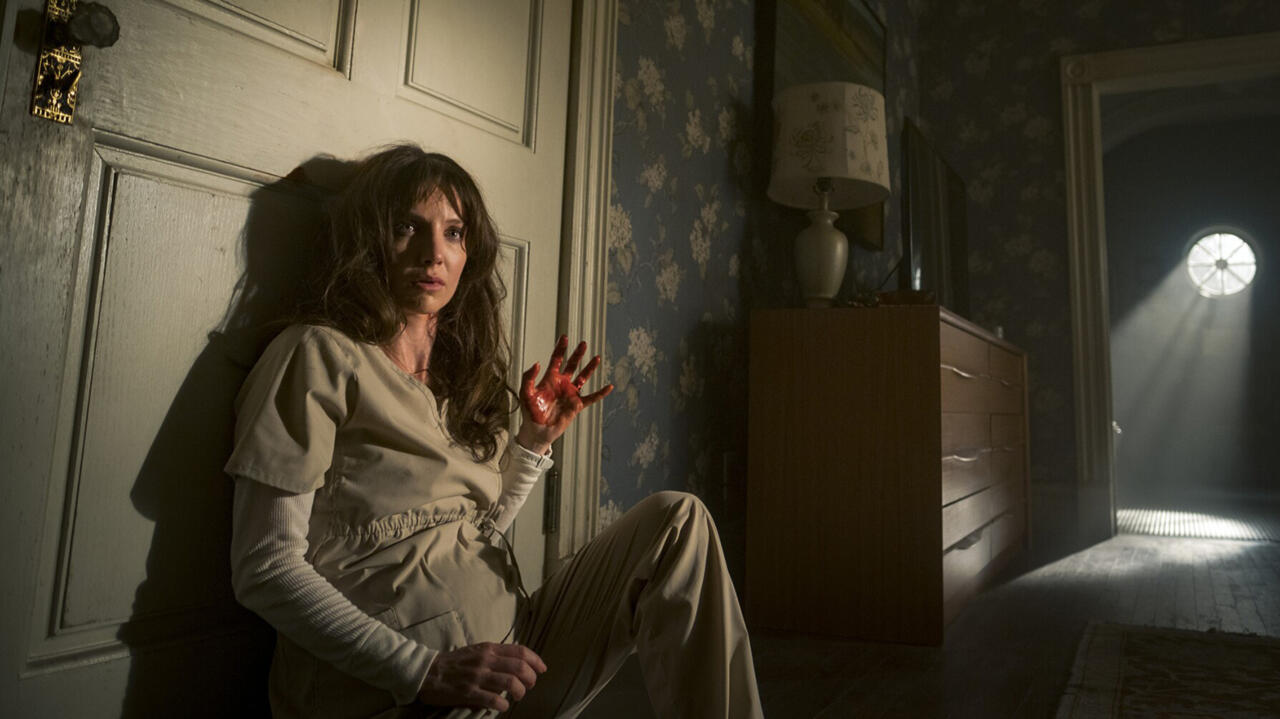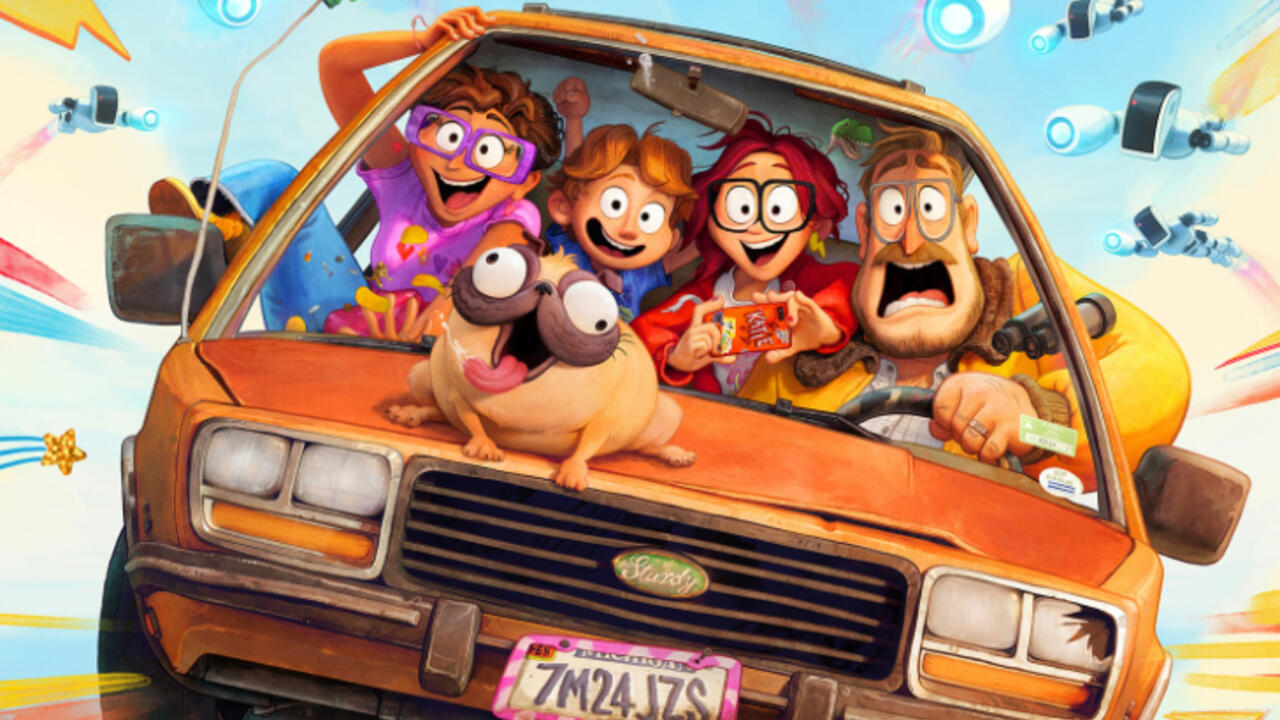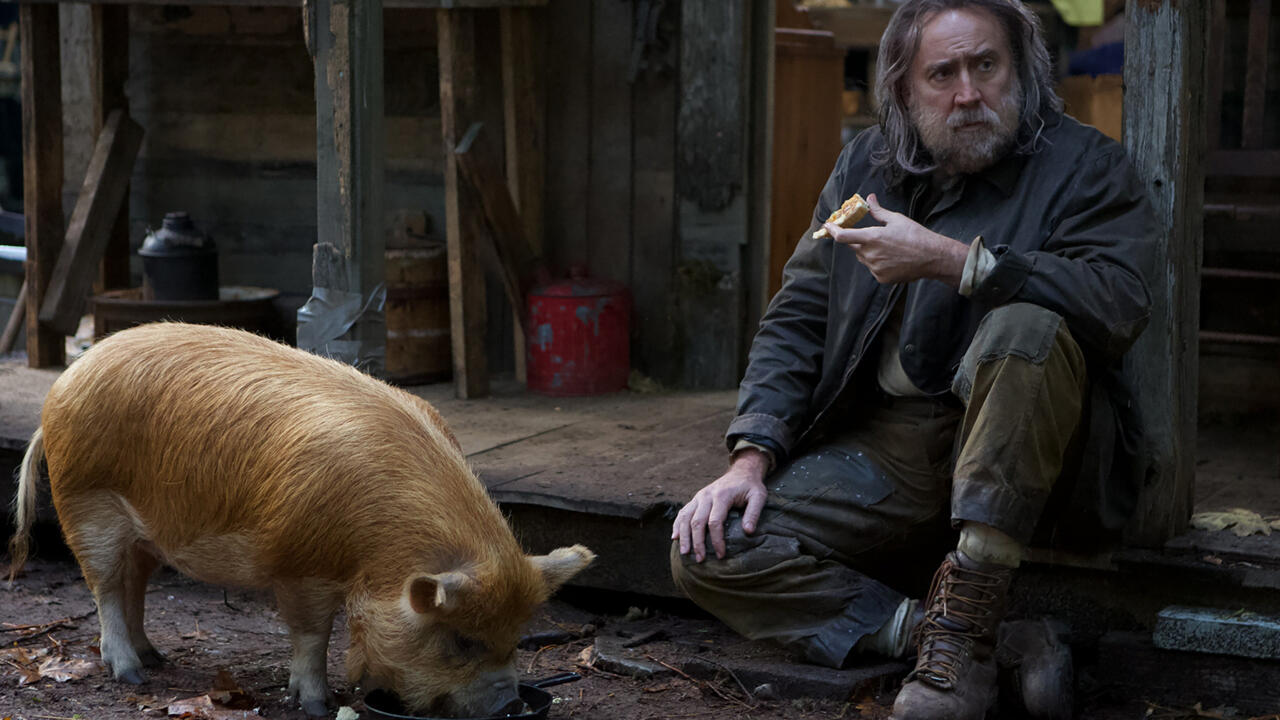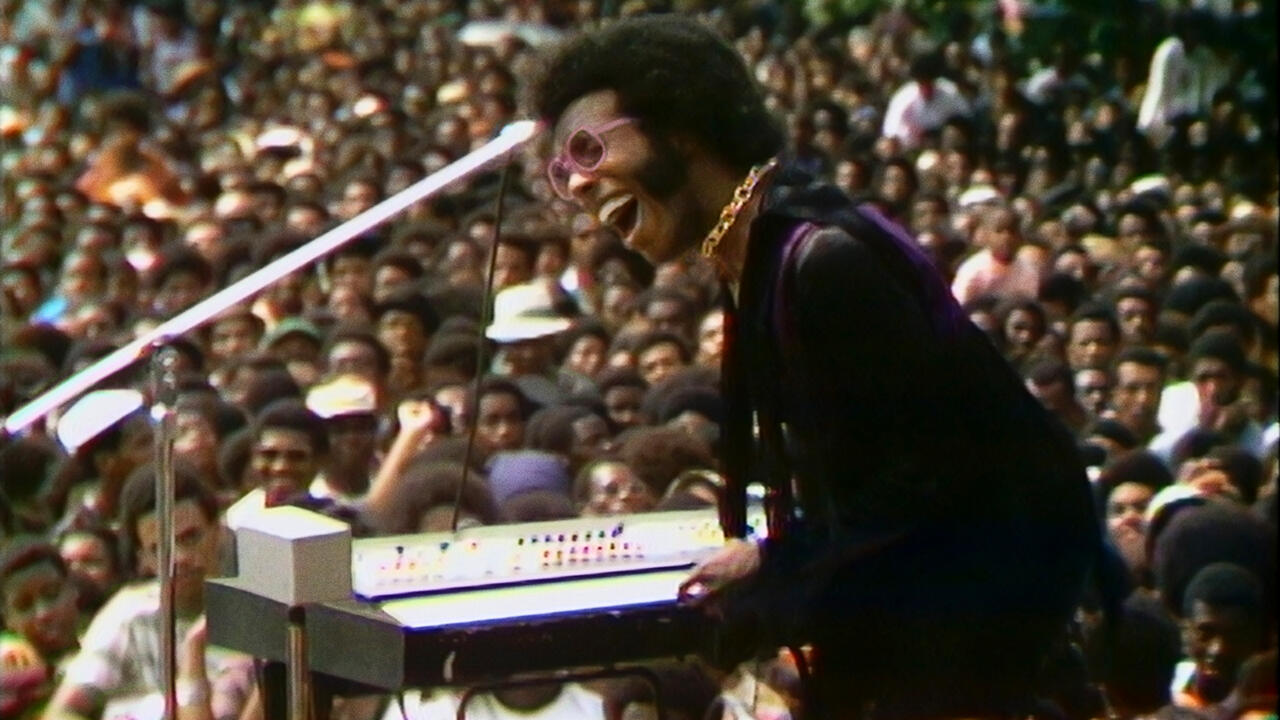By
Chris Pereira
,
Dan Auty
,
Mat Elfring
,
Chris E. Hayner
, and
Mason Downey
on

2020 was practically the year without a movie release, but 2021 more than made up for it. There were films sent to theaters (and digital release) by leaps and bounds. Some even debuted in theaters and on streaming services on the exact same day. We got a number of Marvel films, several highly-anticipated sequels, and even a bunch of wonderful movies based on original ideas (including horror and animated movies).
When we look back at 2021, while box office returns may not have reached the heights they did before the pandemic, it wasn’t due to a lack of worthwhile films. In fact, there were so many that they couldn’t even all fit in GameSpot’s 10 best movies of the year. So if you’re wondering where movies like West Side Story, The Matrix Resurrections, The Suicide Squad, or Judas and the Black Messiah are, just know that they were all considered for this list.
With that out of the way, take a look below at GameSpot’s 10 best movies of 2021. Then, make sure to check out what we decided the number one movie of the year was. It took quite a bit of debate, but when it came down to it, was there any other option?

Spider-Man: No Way Home
There are a lot of ways Spider-Man: No Way Home could have gone wrong–the MCU is already an intricate web of movies that relate back to one another, and No Way Home upped the ante by bringing films that were never part of the MCU into the mix. The risks of the story devolving into complete nonsense were obvious from the drop.
Yet, somehow, No Way Home managed to actually stick the landing. With an impressive cast of returning favorites, plenty of surprises, and a commitment to always picking the emotionally honest choice–even when those emotions were total heartbreak and tragedy–No Way Home was the MCU’s biggest surprise of 2021 and easily the best MCU story of the year.

The Green Knight
David Lowery is one of the most fascinating directors working today, with an eclectic filmography that includes the moving crime drama The Old Man and the Gun and the surreal meditation on grief A Ghost Story. His latest film was another left-turn–a stylish and compelling adaptation of the classic 14th-century poem Sir Gawain and the Green Knight. It tells the story of one of King Arthur’s men, played by Dev Patel, who must fulfill a fatal promise he made to a supernatural being a year earlier.
Lowery’s acknowledged influences range from much-loved fantasy films such as Willow and Excalibur to the silent classic The Passion of Joan of Arc. The superb supporting cast includes Alicia Vikander, Joel Edgerton, Barry Keoghan, and Sean Harris, and Lowery creates a haunting, evocative world of mystery and magic. The movie is packed with stunning imagery and memorable sequences but also given heart by Patel, who turns Gawain into a flawed and often unheroic figure who nevertheless seeks to become a man worthy of sitting at the Round Table.

Malignant
Released in theaters and on HBO Max simultaneously, Malignant was a real surprise. Returning to his horror roots post-Aquaman, director James Wan delivered one of the creepiest, strangest, and most engaging stories of the year. How does one properly explain Malignant without spoiling it? There’s a seemingly supernatural killer on the loose and the prime suspect is a woman with no knowledge of the murders, though she is seemingly being haunted by…something. Malignant is every bit as bizarre a movie as one can possibly imagine, but its horror rings true in a way you’d expect from the creative mind behind the Conjuring, Insidious, and Saw franchises.

The Mitchells vs The Machines
Every year, a dump truck of childrens’ movies unleashes on parents, trying to drive them crazy. The Mitchells vs. The Machines was one of them, but it didn’t drive parents insane because it was a wildly fun film. The Netflix movie comes from Gravity Falls writers Jeff Rowe and Michael Rianda, and it follows a family driving across the country to take their daughter to college. However, there’s a robot apocalypse, and the family is on the run from a bunch of machines who want to send all humans to space.
The film uses a similar animation style as Spider-Man: Into The Spider-Verse, which was similarly produced by Phil Lord and Chris Miller. Aesthetically, it’s unlike anything else we’ve ever seen in animation, as Mitchells vs. The Machines takes that jerky Spider-Verse animation style and makes it part of the tone of the movie even better than in Spider-Verse. Because of this, it comes off as a bit more lighthearted and humorous. And speaking of humorous, this is easily the funniest movie of 2021, like literally laugh-out-loud funny. It is exceptionally rare to have a movie marketed towards kids that is also not only hilarious to adults but also legitimately good.

Shang-Chi and the Legend of the Ten Rings
One of three Marvel movies to come out this year–four if you count Sony’s Spider-Man: No Way Home–Shang-Chi and the Legend of the Ten Rings is one of the better origin stories in the MCU. The reinvention of the martial arts master–who first appeared in 1973–was a fantastic update, and made a C-List hero into an A-Lister. Simu Liu took on the role of the titular hero, and delivered an exciting and engaging performance. Accompanied along with his friend Katy (Awkwafina), Shang-Chi became a buddy adventure, one we desperately needed in 2021.
What Shang-Chi did exceptionally well was add new lore to the MCU. We got a new world of magic that had nothing to do with Doctor Strange, such as the underground criminal element and how that operates with other super-powered beings, and while there was a gigantic CG fight, which is typical to MCU movies, it felt a bit different than what we’ve traditionally seen. Most importantly, it gave us a new hero (or heroes with the addition of Katy) we want to see more of in the future. Thankfully, we’re getting a Shang-Chi sequel.

No Time To Die
When you think of James Bond, you don’t typically think about emotional stories. Yet that’s undoubtedly the big takeaway from No Time to Die, which represents not just the end of Daniel Craig’s run as Bond, but also a foray into a type of storytelling that it’s rarely broached, and certainly never pulled off this well. Cary Fukunaga’s turn as director brought the expected elements–a long, one-shot action scene in a stairwell evokes that True Detective scene, much as you’d hope–but also some other standout twists as well.
An opening scene dips its toes into horror in a way the franchise has never done before, but it’s the emotional core of the movie that’s more likely to stick with you, not the action. Craig brings real humanity to Bond here as he grapples with the notion of having a family and what it might cost him. Bond movies rarely pack real surprises–he’s James Bond, he’s going to come out on top and call it a day–which is what causes the story here to pack a real punch. It may not be the pinnacle of storytelling in film, but to accomplish what No Time to Die does in the context of a big-budget action franchise is a real accomplishment.

Pig
While the initial trailer for Pig sold the film as a porcine John Wick knock-off–with a wild-eyed Nicolas Cage relentless hunting for his stolen pig–the truth turned out to be very different. Sure, that is the basic plot of writer/director Michael Sarnoski’s debut film; Cage’s reclusive, woodland-dwelling former chef Robin’s prize truffle pig is taken, leading to a journey back to urban society to find him. But this is a funny, surreal, heartfelt drama where scenes of cooking far outnumber scenes of fighting.
Cage delivers his best performance for years, a quiet, introspective portrayal of a heartbroken man who has decided to leave the rest of the world behind. He was ably matched by Alex Wolff as Amir, Robin’s much younger truffle-dealing contact from the city, and there are some strange and sometimes upsetting scenes as we peek behind the curtain of Portland’s culinary underground (chef fight club anyone?) Pig is a film about the pain of loss, the cost of creation, and how simple connections can change your life forever.

Summer of Soul
Directed by the drummer of The Roots, Ahmir “Questlove” Thompson, Summer of Soul is a documentary following the Harlem Cultural Festival from 1969–the same year as Woodstock. Over the course of six weeks, music acts such as Stevie Wonder, Sly and the Family Stone, The 5th Dimension, and more played, and while it was filmed in 1969, that footage sat in a basement for 50 years. The finished product was one of the best movies of the year, and made the list of top movies of 2021, according to Metacritic.
Summer of Soul is the perfect snapshot in time of a musical festival most people across the United States have never heard of. It’s a look into the music and culture of Harlem and Black Americans during that time, but not one that feels voyeuristic. It’s a doc that embraces the viewer and brings them in, while also diving into the problems facing Black Americans during that time. The doc also features a variety of interviews with experts and people who attended the festival, painting this full, beautiful picture of this festival. It’s available to stream on Hulu and is a must-watch.

The Fear Street Trilogy
This is kind of a cheat, given that it’s technically three movies, but Netflix’s Fear Street trilogy is nothing short of a triumph. Over the course of three weeks, the streaming service turned RL Stine’s collection of novels into a generations-spanning tale of horror that managed to not only create an intricately-wound series of stories and scares, but embraced several types of horror–from gritty ’70s slashers to late-’90s teen-centric scary movies, to even a story based on the Salem witch trials.
The exploration of subgenres felt authentic, while also building out the world of the films–and leaving us dying for more. Here’s hoping Stine and series director Leigh Janiak have something else up their sleeves.

